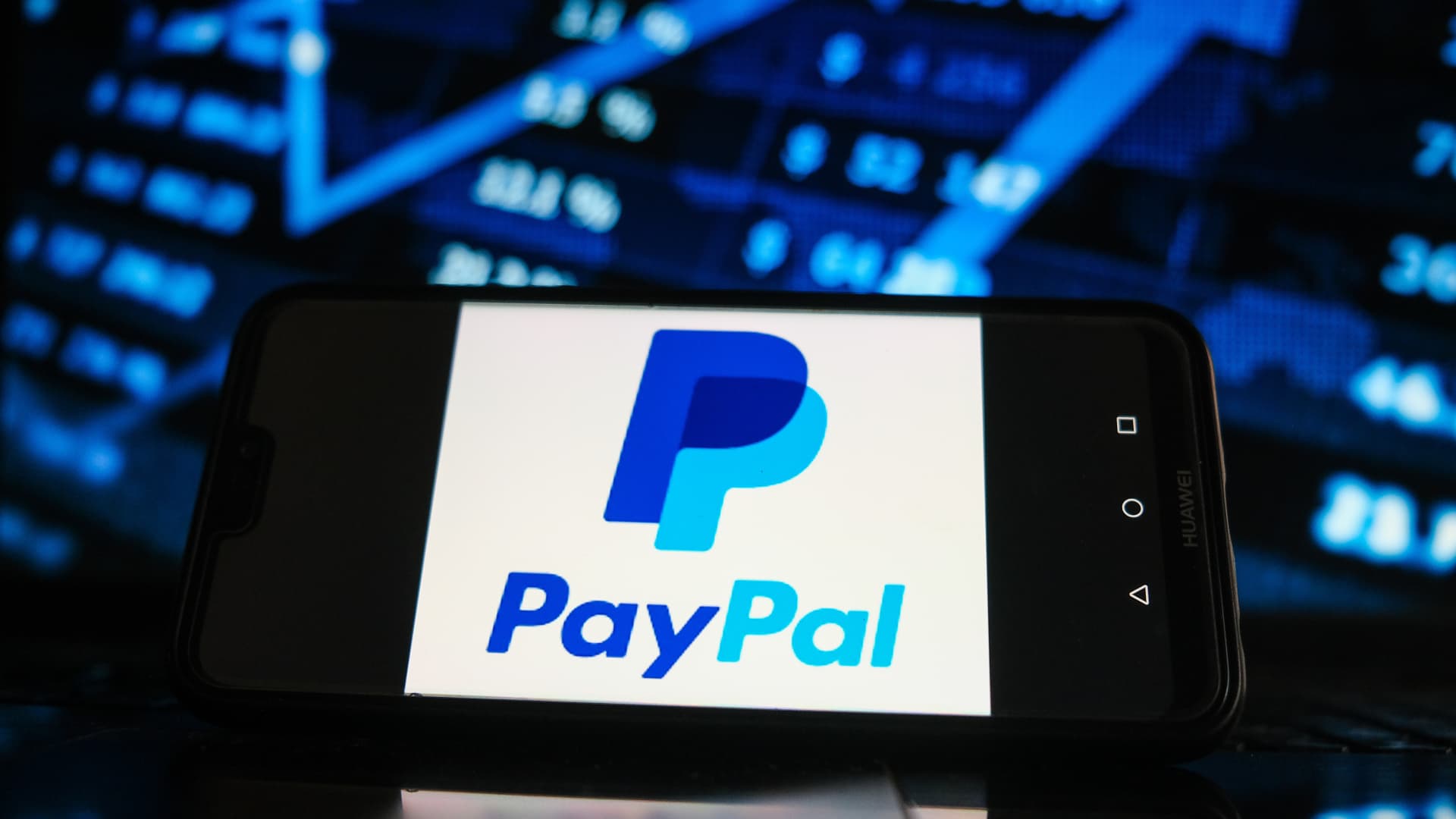
The PayPal logo displayed on a smartphone screen with a stock market graphic in the background.
Omar Marques | SOPA Images | LightRocket | Getty Images
Company: PayPal Holdings (PYPL)
Business: PayPal is a leading technology platform that enables digital payments and simplifies commerce experiences on behalf of merchants and consumers worldwide. The company operates a global, two-sided network that connects merchants and consumers with 426 million active accounts (392 million consumer active accounts and 34 million merchant active accounts) across more than 200 markets. They generate revenue primarily by charging fees for completing payment transactions for their customers and other payment-related services that are typically based on the volume of activity processed on their payments platform.
Stock Market Value: $97.7B ($84.36 per share)
Activist: Elliott Management
Percentage Ownership: n/a
Average Cost: n/a
Activist Commentary: Elliott is a very successful and astute activist investor, particularly in the technology sector. The team includes analysts from leading tech private equity firms, engineers and operating partners. When evaluating an investment, Elliott also hires specialty and general management consultants, expert cost analysts and industry specialists. The firm often watches companies for many years before investing, and it has an extensive stable of impressive board candidates.
What’s Happening?
Behind the Scenes
PayPal has a strong business with its core checkout business (representing approximately 80% of its revenue) growing at least in line with peers and expected to continue to grow as e-commerce expands. In 2013, PayPal acquired Braintree, a more technologically savvy payment provider, allowing customers to customize their shopping carts and integrate them with their existing platforms. This division represents approximately 10% of the company’s revenue, but it could grow at over 20% per year. PayPal also owns Venmo, which represents approximately 5% of its revenue but could also grow at 20% per year.
Elliott has been making big investments in technology growth companies that have been decimated by the markets in the past year, and this is no exception. PayPal is down more than 70% from closing as high as $308.53 just over a year ago. While that is primarily due to a sell-off in growth stocks, there is an opportunity here to improve margins as the company’s sales, marketing, research and development expense levels are higher compared to those of its peers — even double the levels at some of those companies. However, Elliott is more of a strategic activist than an operational activist and has had its best activist successes through encouraging M&A at its portfolio companies. Elliott has had its best returns buying portfolio companies, fixing them and selling them. However, at a $99 billion market cap, PayPal is likely too big for them to do that, even with a partner. A more likely scenario is that the firm encourages PayPal to explore strategic alternatives around Venmo or Braintree or acquire other companies that would have synergies with PayPal’s core business.
One such possibility would be Pinterest. Last year, there were rumors that PayPal was interested in making a bid for Pinterest. Moreover, one of the reasons why potential suitors have not historically pursued Pinterest is because of the perception that its founder and longtime CEO Ben Silbermann would not sell. However, he recently lightened his grip on the company by handing over the CEO role, which could be an indication that he is willing to listen to offers. Even more noteworthy, Elliott has an approximately 9% (or $1 billion+) investment in Pinterest. So, encouraging PayPal to acquire Pinterest could be a win-win situation for Elliott.
Elliott has not disclosed the size of its position, but based on its history we would expect it to be between 1% and 2%, primarily in swaps and other derivatives, which do not have the same disclosure requirements as common stock.
Ken Squire is the founder and president of 13D Monitor, an institutional research service on shareholder activism, and he is the founder and portfolio manager of the 13D Activist Fund, a mutual fund that invests in a portfolio of activist 13D investments. Squire is also the creator of the AESG™ investment category, an activist investment style focused on improving ESG practices of portfolio companies.
